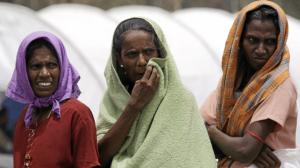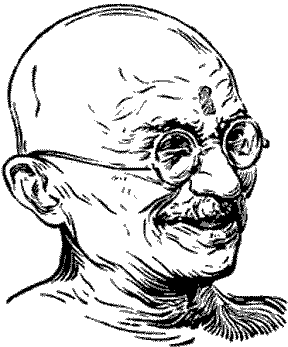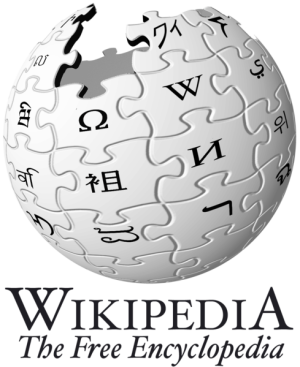
 [February 1, 2012 Ottawa, Ontario] Prime Minister Stephen Harper today issued the following statement in recognition of Black History Month: “Every February, Canadians celebrate Black History Month by learning about and reflecting upon the legacy and accomplishments of black Canadians. “In conjunction with the 200th anniversary of the War of 1812, we are taking a special look this year at the important contributions made by black soldiers to the historic battles that helped define the country that Canada would ultimately become. “One of the heroes of the fight for Canada was a freed slave named Richard Pierpoint, who, in his late 60s, volunteered and served with distinction in a number of battles in the Niagara Peninsula. “Many of the former slaves and black Loyalists who fought on the Canadian side during the War of 1812 settled in places such as Nova Scotia and south-western Ontario, where they and their descendants formed communities that continue to enrich Canada to this day.
[February 1, 2012 Ottawa, Ontario] Prime Minister Stephen Harper today issued the following statement in recognition of Black History Month: “Every February, Canadians celebrate Black History Month by learning about and reflecting upon the legacy and accomplishments of black Canadians. “In conjunction with the 200th anniversary of the War of 1812, we are taking a special look this year at the important contributions made by black soldiers to the historic battles that helped define the country that Canada would ultimately become. “One of the heroes of the fight for Canada was a freed slave named Richard Pierpoint, who, in his late 60s, volunteered and served with distinction in a number of battles in the Niagara Peninsula. “Many of the former slaves and black Loyalists who fought on the Canadian side during the War of 1812 settled in places such as Nova Scotia and south-western Ontario, where they and their descendants formed communities that continue to enrich Canada to this day.

 A group of well-known civil society activists have strongly condemned the recent attack on the Colombo head office of Viluthu, a non-governmental organisation working to promote social justice and women’s rights. In a communiqué signed by 35 activists which was released today, the incident is described as a “cowardly act” that was “carried out in order to intimidate the organisation”. The signatories also expressed dismay that the incident occurred in a high security zone and called on the law enforcement agencies to take prompt action to apprehend those responsible for the attack. The attack took place between the night of January 23 and the early hours of January 24. According to the joint communiqué, “Viluthu’s work is focused on good governance and empowerment in the north and east of Sri Lanka in supporting the war-affected community. These kinds of attacks pose a threat to an open society that is founded on democratic values and the rule of law, and upholds freedom of speech and civic activism. It is such a society that we as Sri Lankans should nurture if we are to move towards reconciliation and a lasting peace.”
A group of well-known civil society activists have strongly condemned the recent attack on the Colombo head office of Viluthu, a non-governmental organisation working to promote social justice and women’s rights. In a communiqué signed by 35 activists which was released today, the incident is described as a “cowardly act” that was “carried out in order to intimidate the organisation”. The signatories also expressed dismay that the incident occurred in a high security zone and called on the law enforcement agencies to take prompt action to apprehend those responsible for the attack. The attack took place between the night of January 23 and the early hours of January 24. According to the joint communiqué, “Viluthu’s work is focused on good governance and empowerment in the north and east of Sri Lanka in supporting the war-affected community. These kinds of attacks pose a threat to an open society that is founded on democratic values and the rule of law, and upholds freedom of speech and civic activism. It is such a society that we as Sri Lankans should nurture if we are to move towards reconciliation and a lasting peace.”

 For Tamils, the end of Sri Lanka’s civil war has brought no peace dividend; for Tamil women, peace has brought with it a continuation – and in some cases an intensification – of violence and insecurity. In the country’s predominantly Tamil-speaking north and east – a region half the size of Nova Scotia – tens of thousands of “war widows” have been living under the control of the central government and Sinhalese security forces since 2009 and the end of the civil war, whose last few months saw as many as 40,000 civilians killed. There has been an alarming increase in gender-based violence, including domestic violence, within the Tamil community, as well as forced prostitution and trafficking. All of this is against a backdrop of credible evidence of wartime sexual violence by government forces, including video footage showing soldiers making sexual comments while handling dead, naked bodies of female suspected Tamil Tiger fighters, some with their hands bound. At the UN Human Rights Council session opening late next month, there is a chance to finally ensure accountability and to address the current state of insecurity; Sri Lanka and the international community, including Canada, should take it.
For Tamils, the end of Sri Lanka’s civil war has brought no peace dividend; for Tamil women, peace has brought with it a continuation – and in some cases an intensification – of violence and insecurity. In the country’s predominantly Tamil-speaking north and east – a region half the size of Nova Scotia – tens of thousands of “war widows” have been living under the control of the central government and Sinhalese security forces since 2009 and the end of the civil war, whose last few months saw as many as 40,000 civilians killed. There has been an alarming increase in gender-based violence, including domestic violence, within the Tamil community, as well as forced prostitution and trafficking. All of this is against a backdrop of credible evidence of wartime sexual violence by government forces, including video footage showing soldiers making sexual comments while handling dead, naked bodies of female suspected Tamil Tiger fighters, some with their hands bound. At the UN Human Rights Council session opening late next month, there is a chance to finally ensure accountability and to address the current state of insecurity; Sri Lanka and the international community, including Canada, should take it.
 The extrajudicial killing of civilians, surrendering soldiers and dissident journalists under the direction of the Sri Lankan government has been alleged by a former general in the Army who was extremely well-placed to comment on military activity during the island nation’s bloody civil war. The source, whose name is withheld for reasons of safety, had high-level security clearance and access to the flow of orders during the final days of the conflict. He made the assertions in legally binding testimony to a US lawyer in New York in 2010, recorded in an affidavit seen by Truthout. His statements hold particular significance because they appear to corroborate claims made in reports by prominent human rights organizations, international media and a report for the United Nations by a panel of experts published in 2011. The allegations also closely corroborate the accounts of other members of the Sri Lankan Army during the civil war. It is believed that representatives of the United States State Department have spoken to the source and hold a rich collection of testimonies and other evidence regarding alleged crimes committed during the civil war.
The extrajudicial killing of civilians, surrendering soldiers and dissident journalists under the direction of the Sri Lankan government has been alleged by a former general in the Army who was extremely well-placed to comment on military activity during the island nation’s bloody civil war. The source, whose name is withheld for reasons of safety, had high-level security clearance and access to the flow of orders during the final days of the conflict. He made the assertions in legally binding testimony to a US lawyer in New York in 2010, recorded in an affidavit seen by Truthout. His statements hold particular significance because they appear to corroborate claims made in reports by prominent human rights organizations, international media and a report for the United Nations by a panel of experts published in 2011. The allegations also closely corroborate the accounts of other members of the Sri Lankan Army during the civil war. It is believed that representatives of the United States State Department have spoken to the source and hold a rich collection of testimonies and other evidence regarding alleged crimes committed during the civil war.
 ஆங்கிலேயர்கள் இந்தியாவை அடிமைப்படுத்தி ஆண்டு கொண்டிருந்தபோது, இந்தியாவில் அவர்களுக்கு எதிராகப் பல போராட்டங்கள் நிகழ்ந்தன. இருப்பினும் அப்போராட்டங்கள் வீறுகொண்டதாக அமையவில்லை. தென்னாப்பிரிக்காவிலிருந்து காந்தியடிகள் இந்தியாவிற்கு வந்து காங்கிரஸ் இயக்கத்திற்குத் தலைமை தாங்கிய பின்னர்தான் ஆங்கிலேயருக்கு எதிரான போராட்டங்கள் மிகவும் தீவிரமடைந்தன எனலாம்.
ஆங்கிலேயர்கள் இந்தியாவை அடிமைப்படுத்தி ஆண்டு கொண்டிருந்தபோது, இந்தியாவில் அவர்களுக்கு எதிராகப் பல போராட்டங்கள் நிகழ்ந்தன. இருப்பினும் அப்போராட்டங்கள் வீறுகொண்டதாக அமையவில்லை. தென்னாப்பிரிக்காவிலிருந்து காந்தியடிகள் இந்தியாவிற்கு வந்து காங்கிரஸ் இயக்கத்திற்குத் தலைமை தாங்கிய பின்னர்தான் ஆங்கிலேயருக்கு எதிரான போராட்டங்கள் மிகவும் தீவிரமடைந்தன எனலாம்.

 About the actionThe Wikipedia community has blacked out the English version of Wikipedia for 24 hours on January 18th to raise awareness about legislation being proposed by the U.S. Congress — the Stop Online Piracy Act (SOPA) in the U.S. House of Representatives, and the PROTECT IP Act (PIPA) in the U.S. Senate — and to encourage readers to speak out against it. This legislation, if passed, will harm the free and open Internet. If you are in the United States, let your congressional representative know what you think of the proposed legislation by clicking here. The blackout will last 24 hours – from midnight to midnight EST (05:00 UTC Wed to 05:00 UTC Thu). This decision was made by Wikipedia’s global community of editors — the people who built Wikipedia. The Wikimedia Foundation, the non-profit organization that operates Wikipedia, also opposes SOPA and PIPA, and supports the editors’ blackout. SOPA and PIPA are real threats to the free and open Internet. Although recent media reports have suggested that the bills are losing support, they are not dead. On January 17th, SOPA’s sponsor said the bill will be discussed and pushed forward in early February. PIPA could be debated in the U.S. Senate as soon as next week. There is a need to send a strong message that bills like SOPA and PIPA must not move forward: they will cause too much damage.
About the actionThe Wikipedia community has blacked out the English version of Wikipedia for 24 hours on January 18th to raise awareness about legislation being proposed by the U.S. Congress — the Stop Online Piracy Act (SOPA) in the U.S. House of Representatives, and the PROTECT IP Act (PIPA) in the U.S. Senate — and to encourage readers to speak out against it. This legislation, if passed, will harm the free and open Internet. If you are in the United States, let your congressional representative know what you think of the proposed legislation by clicking here. The blackout will last 24 hours – from midnight to midnight EST (05:00 UTC Wed to 05:00 UTC Thu). This decision was made by Wikipedia’s global community of editors — the people who built Wikipedia. The Wikimedia Foundation, the non-profit organization that operates Wikipedia, also opposes SOPA and PIPA, and supports the editors’ blackout. SOPA and PIPA are real threats to the free and open Internet. Although recent media reports have suggested that the bills are losing support, they are not dead. On January 17th, SOPA’s sponsor said the bill will be discussed and pushed forward in early February. PIPA could be debated in the U.S. Senate as soon as next week. There is a need to send a strong message that bills like SOPA and PIPA must not move forward: they will cause too much damage.


WHEREAS our city’s Tamil community is committed to preserving its rich heritage and has contributed greatly to Toronto’s diverse population. Tamil Heritage Month provides the opportunity to showcase and share the community’s vibrant culture and traditions and longstanding history with Toronto residents and visitors.
 இலங்கை அரசுக்கும் தமிழ்த் தேசியக் கூட்டமைப்புக்குமிடையேயான ‘பேச்சுவார்த்தை’ பற்றி உலகத் தமிழர் பேரவை அரசியல் சமூகங்களின் வரலாற்றில் தனியார், குழுக்கள், அமைப்புக்கள் மற்றும் பொதுப்படையாக மக்கள் போன்றோர் தமது வாழவின் அடித்தளத்தையே அச்சுறுத்தும் ஆதிக்க சக்திகளை எதிர்த்து, சமுதாயத்தின் பொது நன்மையையை மேம்படுத்துவதற்காகத் தம்மிடையேயுள்ள வேறுபாடுகளைக் களைந்து ஒருவரோடு ஒருவர் ஐக்கியப்பட்டு ஒன்றாகச் செயற்பட வேண்டிய சந்தர்ப்பங்கள், மிக அரிதாகவெனினும், ஏற்படுவதுண்டு. இலங்கையில் வாழும் தமிழ் மக்கள் இப்படியான காலகட்டத்தில் உள்ளனர். வெற்றியீட்டிய இலங்கை அரசானது எம்மக்களின் நிலங்களை ஆக்கிரமித்தல், அவர்களின் விடுதலையுரிமையை மறுத்தல், உடைமைகளைப் பறித்தல், அவர்களை நிரந்தர அடிமைகளாக்குவதற்கான திட்டத்தைச் செயற்படுத்தல் ஆகிய அடாத்துக்களைத் தொடர்ச்சியாகக் குவித்து அவர்களை நிரந்தர அடிமை நிலைக்குத்தள்ள எத்தனிக்கின்றது. இவ்வாறான அரச அடக்குமுறைகளை எதிர்த்துத் தம் வருங்கால நலன்களையும் பாதுகாப்பையும் காப்பது ஒடுக்கப்பட்டவர்களின் உரிமையாகும். மேற்கூறிய அடக்குமுறைகளை எம்மக்கள் வேறு வழியின்றி அமைதியாகச் சகித்து வாழ்ந்து வரும் இவ்வேளையில் நாம் எம்மிடையே இருக்கக்கூடிய வேறுபாடுகளைக் களைந்து தற்போதுள்ள அரசமுறையை மாற்றியமைப்பதற்கு எமது உறுதிப்பாட்டை வலிமைப்படுத்துதல் வேண்டும்.
இலங்கை அரசுக்கும் தமிழ்த் தேசியக் கூட்டமைப்புக்குமிடையேயான ‘பேச்சுவார்த்தை’ பற்றி உலகத் தமிழர் பேரவை அரசியல் சமூகங்களின் வரலாற்றில் தனியார், குழுக்கள், அமைப்புக்கள் மற்றும் பொதுப்படையாக மக்கள் போன்றோர் தமது வாழவின் அடித்தளத்தையே அச்சுறுத்தும் ஆதிக்க சக்திகளை எதிர்த்து, சமுதாயத்தின் பொது நன்மையையை மேம்படுத்துவதற்காகத் தம்மிடையேயுள்ள வேறுபாடுகளைக் களைந்து ஒருவரோடு ஒருவர் ஐக்கியப்பட்டு ஒன்றாகச் செயற்பட வேண்டிய சந்தர்ப்பங்கள், மிக அரிதாகவெனினும், ஏற்படுவதுண்டு. இலங்கையில் வாழும் தமிழ் மக்கள் இப்படியான காலகட்டத்தில் உள்ளனர். வெற்றியீட்டிய இலங்கை அரசானது எம்மக்களின் நிலங்களை ஆக்கிரமித்தல், அவர்களின் விடுதலையுரிமையை மறுத்தல், உடைமைகளைப் பறித்தல், அவர்களை நிரந்தர அடிமைகளாக்குவதற்கான திட்டத்தைச் செயற்படுத்தல் ஆகிய அடாத்துக்களைத் தொடர்ச்சியாகக் குவித்து அவர்களை நிரந்தர அடிமை நிலைக்குத்தள்ள எத்தனிக்கின்றது. இவ்வாறான அரச அடக்குமுறைகளை எதிர்த்துத் தம் வருங்கால நலன்களையும் பாதுகாப்பையும் காப்பது ஒடுக்கப்பட்டவர்களின் உரிமையாகும். மேற்கூறிய அடக்குமுறைகளை எம்மக்கள் வேறு வழியின்றி அமைதியாகச் சகித்து வாழ்ந்து வரும் இவ்வேளையில் நாம் எம்மிடையே இருக்கக்கூடிய வேறுபாடுகளைக் களைந்து தற்போதுள்ள அரசமுறையை மாற்றியமைப்பதற்கு எமது உறுதிப்பாட்டை வலிமைப்படுத்துதல் வேண்டும்.
 As we approach the third anniversary of the Sri Lankan genocide, a report is released, signed by 71 Tamil elite intellectuals titled as “An appeal to the Tamil Community and its civil and political representatives”, appealing to Tamil community for the resettlement of Muslim communities that were evicted by the LTTE during the war.
As we approach the third anniversary of the Sri Lankan genocide, a report is released, signed by 71 Tamil elite intellectuals titled as “An appeal to the Tamil Community and its civil and political representatives”, appealing to Tamil community for the resettlement of Muslim communities that were evicted by the LTTE during the war.
Everyone wants to see justice for all. But our imminent erudite scholars have missed the elephant in the room. How was it that they do not see in a similar vein the “international community” silently support of Sri Lankan genocide? How was it that these same bureaucrats wearing the garb of intellectuals silently attended to their daily decorum and peacefully watched the news of the genocide taking place? And, chose to remain silent at the aftermath.
 Since the end of the war in May 2009, it has become important for all ethnic communities of Sri Lanka to re-examine and reevaluate their past. It is through this process of self-reflection that some of the major issues that confront state and civil society today can be meaningfully reconceived and reconfigured for the future.
Since the end of the war in May 2009, it has become important for all ethnic communities of Sri Lanka to re-examine and reevaluate their past. It is through this process of self-reflection that some of the major issues that confront state and civil society today can be meaningfully reconceived and reconfigured for the future.
While the war has drawn to a decisive close, the ethnic conflict is far from over and demands solutions short- and long-term. The quest for a viable political solution from a majoritarian state is a primary concern for the Tamil community today. Continued insecurity in the face of militarisation is an urgent matter. Armed militancy and a political culture of violence have further eroded into the democratic fabric of society. Resettlement and rehabilitation remain unresolved problems. Distribution of land, access to state and social networks, language parity, devolution of power, inter-ethnic reconciliation and the continued presence of gender, class and caste stratifications are a part of the political landscape today.








